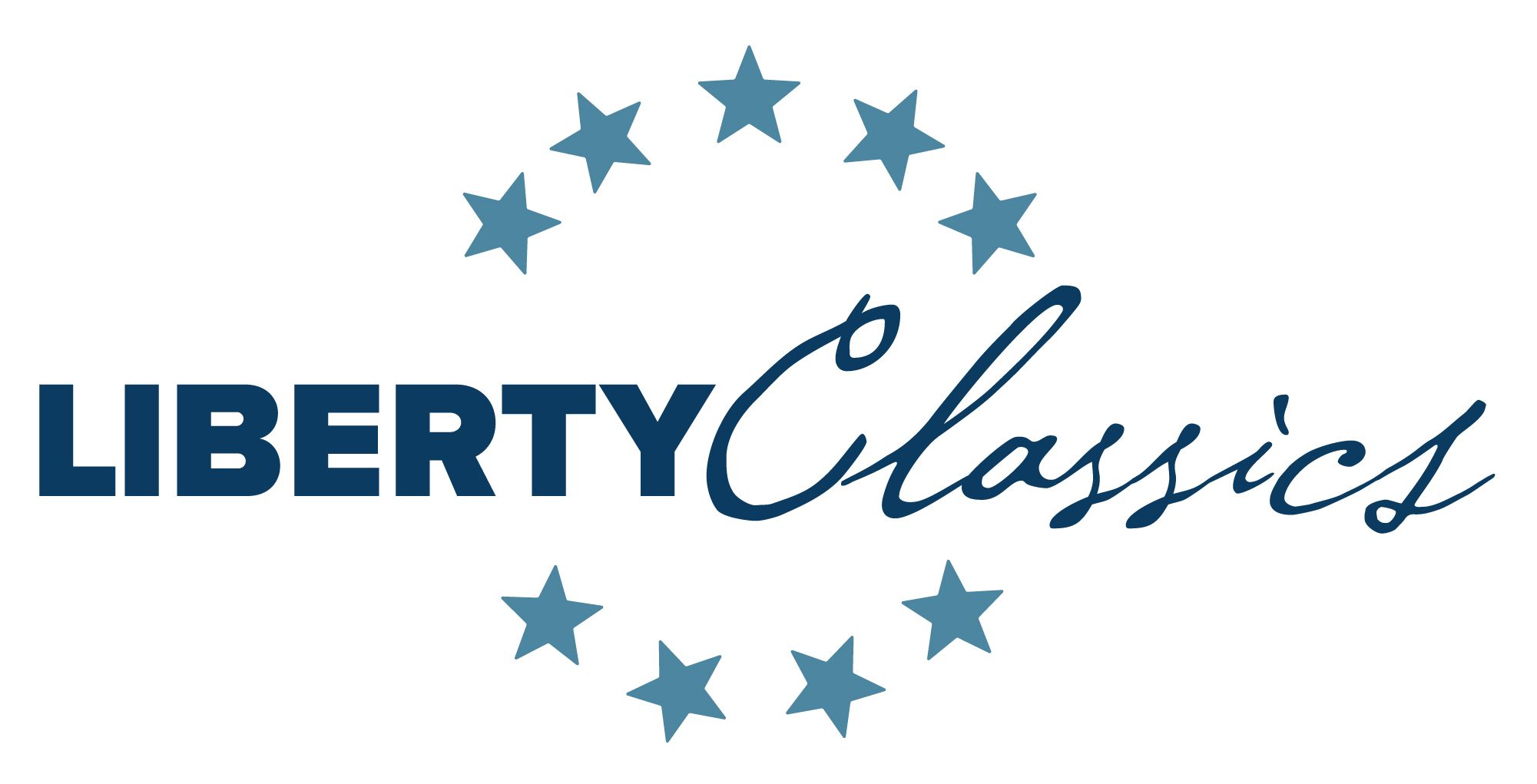Liberty, Not Licensing: John Milton's Areopagitica
By Sarah Skwire


- A Liberty Classic Book Review of Areopagitica and Other Political Writings of John Milton.1
What does it take for a book to get banned? The Newbery Award-winning children’s book, The Higher Power of Lucky, has been the center of a storm of this kind of debate because of its use of the apparently shocking word “scrotum.” The Harry Potter novels have come under fire for being un-Christian, for encouraging children to believe in magic, and for including deaths of characters. The Adventures of Huckleberry Finn has long been banned by schools for its use of the word “nigger.” It’s been quite a long time since a book for adults has been banned, but there have been some famous obscenity cases and bans over D.H. Lawrence’s Lady Chatterley’s Lover, James Joyce’s Ulysses, and Vladimir Nabokov’s Lolita. Ralph Ellison’s The Invisible Man has been banned occasionally, and so has George Orwell’s 1984. Many books have been banned within the United States—sometimes throughout the country and sometimes just in individual locales or schools. Even more have been challenged in an attempt to ban them.
But, the important thing to remember is that—in current times—these bans are just bans on selling the book, or teaching it in a class. That’s terrible. Don’t get me wrong. But the kinds of bans that the framers of the Constitution were most likely thinking about when they protected a free press are even more upsetting. These are pre-publication bans on written material, also called “licensing.” Licensing meant that before a book was published or a play was performed, a government official, or a committee made up of government officials, had to approve the content. If the officials felt the work’s content was inappropriate, they would refuse to give it their literal seal of approval, and it would be illegal to publish the book within the country. These are the kinds of bans that John Milton addresses in one of the most famous defenses of free speech and free publication—Areopagitica.
In writing Areopagitica Milton plays with the literary conceit that he is writing a speech to be given before Parliament in much the same way that the classical Greek orator, Isocrates, addressed the General Assembly of Athens (or Areopagus) on the topic of civic order and safety. Since Milton is addressing a similarly august body, and “speaking” on a similar topic, (censorship is nearly always done on the grounds of protecting people and maintaining good order) he titles his piece “Areopagitica” and fills it with classical allusions. He also constantly speaks of his essay in terms of a speech—referring to its sounds, and so on. He never intended the speech to be given before Parliament, however. Printing it won it a much wider audience.
Milton begins his argument against licensing by praising the freedom of expression that allows him to write the argument in the first place. He takes his epigraph from Euripedes’s play The Suppliants. “This is true liberty, when free-born men, /Having to advise the public, may speak free,/Which he who can and will deserves high praise;/Who neither can nor will, may hold his peace: /What can be juster in a state than this?” Milton, preparing to critique his government for clamping down on one kind of language, praises their willingness to support another kind. This is a tactic seen again and again throughout the piece. Indeed, just a page later, he points out that, “… This is not the liberty which we can hope, that no grievance ever should arise in the Commonwealth, that let no man in this World expect; but when complaints are freely heard, deeply considered, and speedily reform’d then is the utmost bound of civil liberty attained that wise men look for.” He argues, in other words, that no one expects the government to be perfect, but they do expect the government to listen to the voices of the people when they have legitimate grievances. This is a clever set up. Since Milton is about to argue in favor of allowing books to be printed in order to allow free discussion and debate, it makes sense for him to remind the Parliament that by “listening” to his “speech” they’re already allowing some of this discussion and debate, and to remind his readers—whomever they are—that there is a classical and an English tradition of governments listening to the complaints of the people.
Milton goes on to lay out four different arguments that he will muster against the idea of licensing publications. First, he says, the kinds of people who invented this type of pre-publication censorship are not the kinds of people that the Parliament wants to be. Second, reading is beneficial, regardless of the quality of the book. Third, the order won’t actually do anything to fight against “scandalous, seditious, and libellous books.” And lastly, that the order will discourage learning and make Englishmen stupid. I want to look at each of these arguments in turn, because I think that it’s very important—if you believe that language can serve as a tool for liberty—to know some of the best and most famous arguments in its defense. But before Milton gets down to his arguments he establishes a crucial point about the significance of books and their power.
- Books are not absolutely dead things, but doe contain a potencie of life in them to be as active as that soul was whose progeny they are; nay they do preserve as in a vial the purest efficacie and extraction of that living intellect that bred them. I know they are as lively, and as vigorously productive, as those fabulous Dragon’s teeth; and being sown up and down, may chance to spring up armed men. And yet on the other hand unless wariness be used, as good almost kill a man as kill a good book; who kills a man kills a reasonable creature, Gods Image; but he who destroys a good book, kills reason itself…
In arguing for the power of books and language, Milton does not attempt to deny their potential to be dangerous. He is not one to argue “They’re only words on the page. They can’t hurt you.” Instead, he compares them to Dragon’s teeth—a reference to the story from Metamorphoses where Cadmus needs an army, plants dragons’ teeth in the soil, and grows a crop of soldiers. Books, says Milton, are as “lively and as vigorously productive” as these teeth were. They inspire future generations of books. They inspire thoughts. They may even, like the dragon’s teeth, produce armies. But that is not sufficient reason to kill a book by preventing its publication.
What is sufficient reason then? Or, what has been sufficient reason historically? Milton now begins to set up his first argument—that those who censor are not the kinds of people that the English Parliament would like to be. He begins with a look at Athens where “books and wits were busier than in any other part of Greece ” and notes that only blasphemous/atheistic works and legally libellous works were burnt. (Keep an eye, incidentally, on these exceptions to the free press and how they change or remain the same over the course of Milton’s piece.) The Spartans, he argues, didn’t need any specific licensing because they hated books and chased poets out of their city. This protection against poets, argues Milton, does not seem to have helped them since as, “Euripides confirms in Andromache, that their women were all unchaste.” As for the Romans, “neither the Satyricall sharpness, or naked plainness of Lucilius or Catullus, or Flavius [were] by any order prohibited.” Even when the Roman emperors became Christians, the laws, according to Milton, were no more severe than previously. “The books of those whom they took to be grand Hereticks were examined, refuted, and condemn’d in the generall Councells; and not till then were prohibited.” In other words, there was still no pre-publication censorship. Milton claims it takes the rise of the Catholic Church for censorship to really kick into gear.
And this is Milton’s first argument against licensing. It was invented by the Catholics, whom 17th century English Protestants hate and fear and are fundamentally different from. Why would they want to reinforce this Catholic invention? Indeed, he points out that licensing was first invented to keep early Protestant works from being published. So why would Protestants want to use this same tool?
(It’s important to remember that Milton’s hatred of the Catholic church is not necessarily entirely rational and well-thought out. Milton was a particularly fervent Protestant, living in a time when the divide between the Protestants and Catholics was particularly fierce. England is about to chop off their king’s head, fight a civil war, and install a completely new form of government because of these religious issues.)
Besides, points out Milton, swinging into his next argument, we have to remember to consider the value of reading regardless of the quality of the books read. Again, Milton doesn’t attempt to argue that all books are good or right or true. Some books are rotten. Some books are good. But “The best books to a naughty mind are not unappliable to occasions of evill,” and bad books may serve to “discover, to confute, to forewarn and to illustrate.” It is for the reader to encounter the books and to decide how to respond to them. That encounter and response is the thing we call reading and the thing we call education. Milton, further, makes such reading a spiritual issue:
- He that can apprehend and consider vice with all her baits and seeming pleasures, and yet abstain, and yet distinguish, and yet prefer that which is truly better, his is the true wayfaring Christian. I cannot praise a fugitive and cloistered virtue, unexercised and unbreathed that never sallies out and sees her adversary…. Since therefore the knowledge and survay of vice is in this world so necessary to the constituting of human virtue, and the scanning of error to the confirmation of truth how can we more safely, and with less danger scout into the regions of sin and falsity then by reading…
Milton is not arguing for some sort of post-modern “meaning doesn’t matter” notion that all books are good by virtue of being books, and that we should approach them completely uncritically. He’s arguing for reading with your mind and your spirit, together, and testing the goodness or badness of a book by applying the strength of your intellect and character to it. And if this is the way that the wise person approaches reading, he will become wiser regardless of what he reads. And a fool will inevitably only become more foolish, regardless of what, or if, he reads. So why “deprive a wise man of any advantage to his wisdome while we seek to restrain from a fool that which being restrained will be no hindrance to his folly?”
Licensing won’t, in other words, do what it’s supposed to do. This is Milton’s third argument. Rather than protecting people from inappropriate books, licensing will, according to Milton, spur the instinct to regulate all sorts of other things—dress, conversation between unmarried man and women, drinking, gluttony, free assembly, and so on. If we regulate everything, he argues, what does virtue mean? Indeed, if licensing is truly to do what it intends, it will have to retroactively cover all books previously printed. It will have to examine all books entering from foreign countries. It will have to outlaw entire print shops merely in order to save time.
And even if they do all this, they will achieve nothing. Look, he says, at countries with the strictest laws about printed material. Are their people any more virtuous than ours?
And what will be the effect of licensing upon the people? “He who is not trusted with his own actions, his drift not being known to be evill, and standing to the hazard of law and penalty, has no great argument to think himself reputed in this Commonwealth wherein he was born for other than a fool or a foreigner.” Indeed, licensing is clear evidence of the government’s contempt for its people. “If we be so jealous over [the common people] as that we dare not trust them with an English pamphlet what do we but censure them for a giddy, vicious, and ungrounded people; in such a sick and weak estate of faith and discretion, as to be able to take nothing down but through the pipe of a licenser. That this is care or love of them, we cannot pretend….”
It is English liberty, the liberty protected and nourished by Parliament, the liberty that has freed him to “speak” to Parliament as he now does, that has inspired all this writing that Parliament now seeks to control. “Ye cannot make us now lesse capable, lesse knowing, less eagerly pursuing of the truth, unlesse ye first make your selves, that made us so, lesse the lovers, less the founders of our own true liberty.” A free people, says Milton, writes and reads and thinks. A good government allows them to do so. Language is the product of a liberal society. To shut down its production is to render the society illiberal forever.
Footnotes
[1] Areopagitica and Other Political Writings of John Milton, by John Milton. Foreword by John Alvis. Liberty Fund, Inc. Available at the Liberty Fund Book Catalog.

